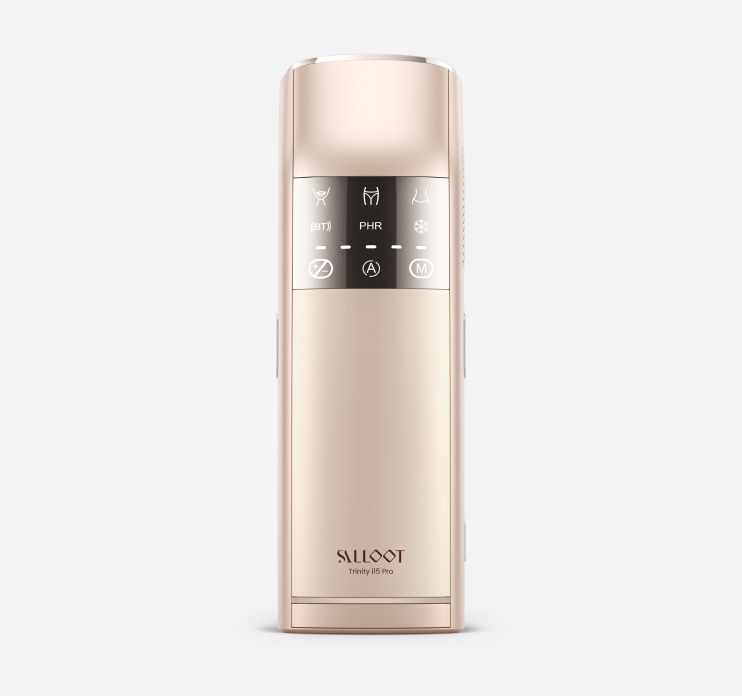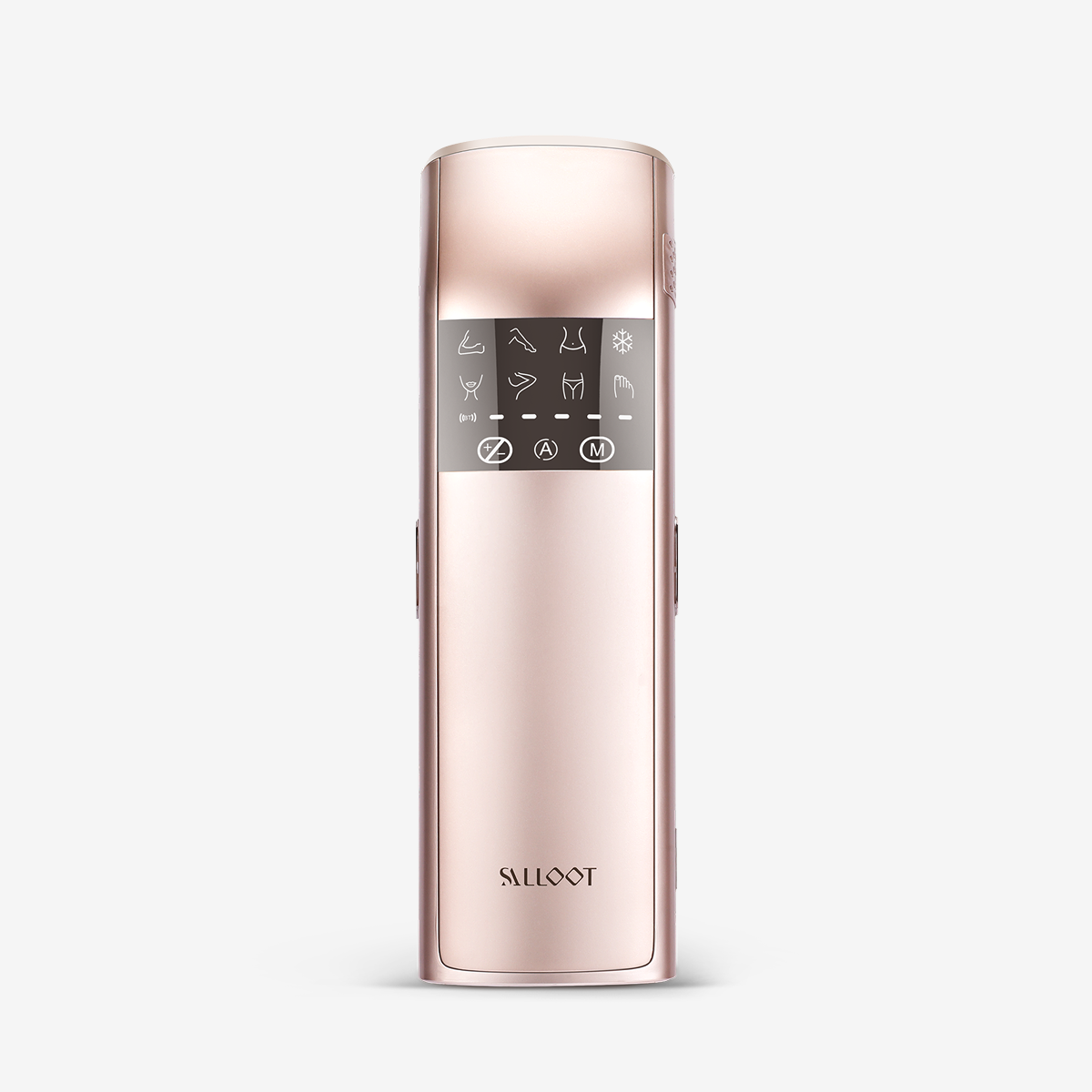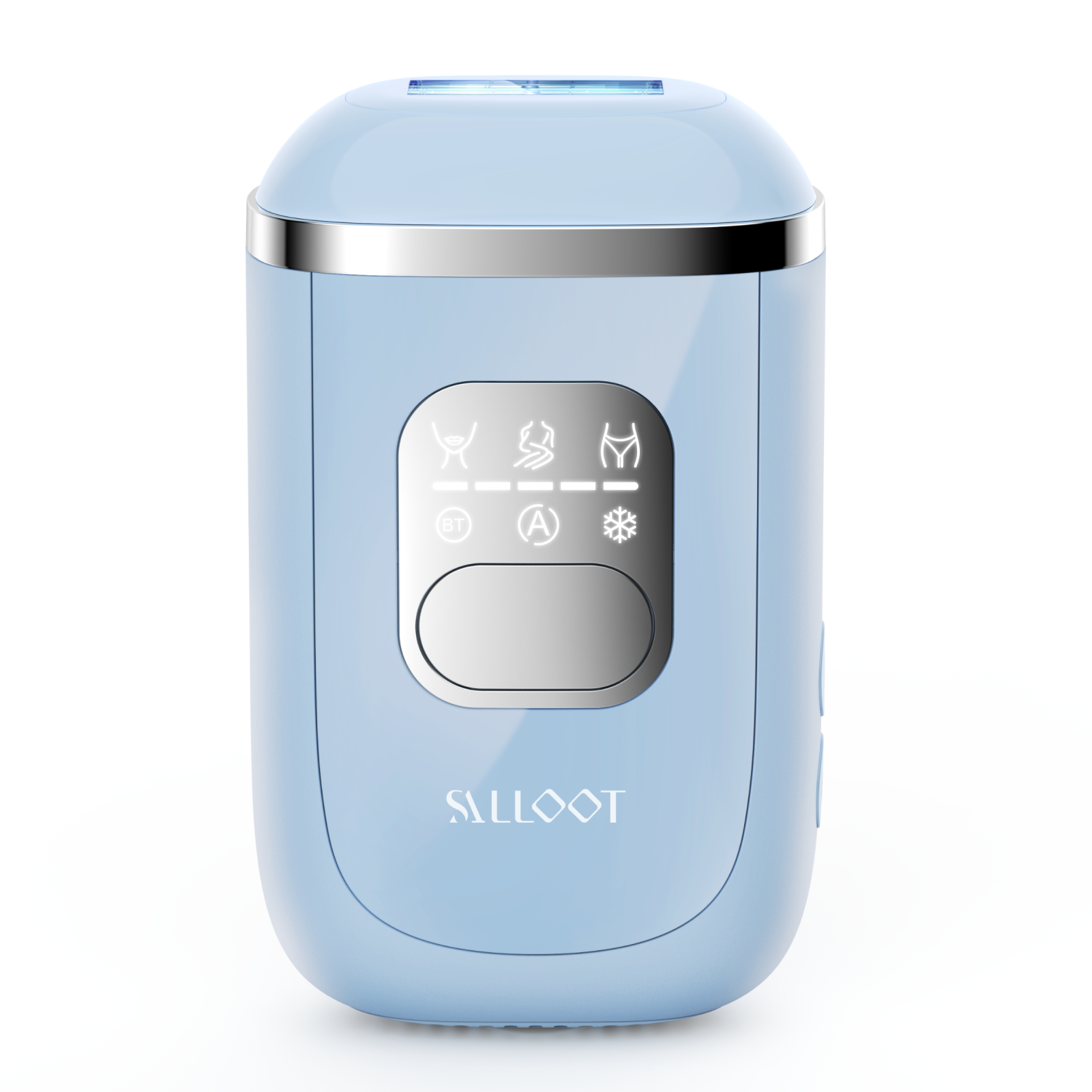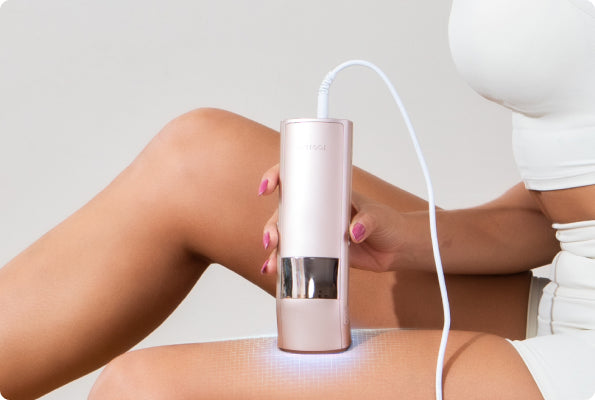¿La depilación láser IPL causa cáncer?
Aug 29, 2024
Introducción: La tecnología de depilación IPL (luz pulsada intensa) es un método de depilación popular que ofrece una experiencia de depilación conveniente y efectiva ya sea que se utilice en casa o en tratamientos de salón profesionales. Sin embargo, con la aplicación generalizada de esta tecnología, muchas personas han comenzado a preocuparse por su seguridad a largo plazo, especialmente si puede causar cáncer. Este artículo explorará este tema, analizará la investigación científica y responderá preguntas sobre la seguridad de la depilación láser IPL, en particular el dispositivo de depilación doméstica SALLOOT iGlow 10.
1. ¿Qué es la depilación láser IPL?
La depilación láser IPL funciona emitiendo una luz de amplio espectro que apunta a la melanina de los folículos pilosos, convirtiendo la energía de la luz en energía térmica, destruyendo así los folículos e inhibiendo el crecimiento del cabello. Esta tecnología se diferencia de la depilación láser tradicional en que la IPL utiliza un espectro de luz más amplio, cubriendo un área más grande de piel y reduciendo la irritación cutánea. Como resultado, la tecnología IPL se ha convertido en una opción popular tanto para usuarios domésticos como para esteticistas profesionales.
2. ¿La depilación láser IPL causa cáncer?
Actualmente, la investigación científica no ha encontrado un vínculo directo entre la depilación láser IPL y el cáncer. Los estudios han demostrado que las longitudes de onda de luz utilizadas en IPL son diferentes de los rayos ultravioleta. La energía de los fotones IPL se concentra en las longitudes de onda de la luz visible y del infrarrojo cercano, que no dañan el ADN y, por lo tanto, no aumentan el riesgo de cáncer. Por el contrario, la radiación ultravioleta es una causa conocida de cáncer de piel, mientras que la luz IPL es de una naturaleza completamente diferente y no representa la misma amenaza.
3. Seguridad de la depilación láser IPL
El dispositivo de depilación doméstica SALLOOT iGlow 10 es un producto seguro certificado por la FDA (Administración de Alimentos y Medicamentos). Esta certificación significa que el dispositivo ha pasado rigurosas pruebas de seguridad, garantizando que no tendrá efectos adversos sobre la salud del usuario en condiciones normales de uso. La aprobación de la FDA es un indicador importante de la seguridad del producto en todo el mundo, y demuestra aún más el buen equilibrio entre la eficacia de la depilación y la seguridad del usuario del SALLOOT iGlow 10.
4. Conceptos erróneos sobre la terapia con fotones
Debido a la popularidad de la tecnología de fotones, algunos usuarios pueden asociarla con la terapia de luz o la radiación, lo que genera preocupaciones innecesarias. Sin embargo, los fotones en la depilación IPL son diferentes a los de la terapia de luz terapéutica; su energía se concentra en los folículos pilosos y no penetra en capas más profundas de la piel ni afecta otros tejidos. Se ha demostrado que esta tecnología es segura a través de numerosos ensayos clínicos y registros de uso a largo plazo, sin necesidad de preocuparse por los riesgos de cáncer.
5. Conclusión
En resumen, la depilación láser IPL, incluidos los dispositivos domésticos como el SALLOOT iGlow 10, no ha demostrado ningún riesgo de causar cáncer según el conocimiento científico actual. Por el contrario, proporcionan un método eficaz y seguro de eliminación del vello, especialmente para los usuarios que buscan comodidad y protección de la privacidad. Los usuarios pueden utilizar con confianza el SALLOOT iGlow 10 y disfrutar de una experiencia de depilación segura certificada por la FDA sin preocuparse por problemas de salud derivados del uso a largo plazo.
Apéndice:
- https://www.fda.gov https://www.fda.gov /
- https://pubmed.ncbi.nlm.nih.gov https://pubmed.ncbi.nlm.nih.gov /






